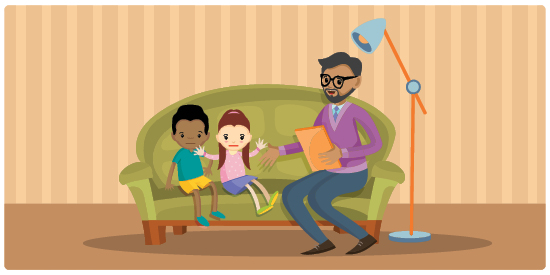 It’s a simple matter of life-and-death, but it’s the toughest of subjects for a casual chat. Maybe that’s exactly why we need to talk it, openly and honestly, and with a little bit of humour too.
It’s a simple matter of life-and-death, but it’s the toughest of subjects for a casual chat. Maybe that’s exactly why we need to talk it, openly and honestly, and with a little bit of humour too.
Of all transitions that happen after falling from the comfort of the womb, the biggest must be the transition from life to death that awaits us all.
It is such a glaringly obvious thing, and something that we all share, yet it is not that easy a thing to talk about, or even to face up to. A change moment that makes anything else pale in comparison.
Despite that, it feels like speaking about death is a taboo. With children, less so, I feel. Certainly, children are exposed to death, and need support to understand the sudden absence of a loved one, as does everyone. In my experience however, I have come to see that children are more candid and less guarded than their adults, and that there is much to learn from them.
A friend was lost to us recently, a young father of two girls. The way these young women disported themselves at my friend’s ‘Irish wake,’ where they sang songs in front of hundreds of mourners, was testament to an incredible inner strength I think we would do well to locate before we need to deploy it.
I therefore chat with my kids about death, often. There are a few ways into the topic, besides the obvious one about whether there is an afterlife or not, and what it might be like. ‘Would you like to be buried or cremated?’ I asked Eve, aged 10.
‘Neither,’ she said. ‘I’d like to be dropped into the sea from a helicopter, so the whales and the dolphins and even the sharks can nibble my toes.’
As death becomes a frequent reference for my children, it serves as an unknown fixed point that throws open many questions. We speak about it without any mystique about people going “off to a better place.”
This is the place, here and now. Grandparents ailing, peers, teachers even, dying tragically. My children seeing grown men cry all week, as we recently lost a brother amongst us. We fail to speak about it candidly at our peril. It is often a sudden thing, which is why preparation isn’t such a bad idea.
Another tack might be to talk about possessions. ‘Dad, when you die, can I have that pair of shoes?’ or ‘Dad, when you die, can I have the TV?’ One of them enquires who will get the house, for they don’t want to live with each other. I explain how a trust works. It gives me an opportunity to demonstrate that I love them equally.
The fact that I will not be a permanent fixture in their lives gives me a bit of breathing space. The fact that they understand this, at a young age, means that they will be able to move on that much easier. It also means, to me, that they will step into the world when they become adults, and lengthen that imaginary umbilicus that still ties us, finding their own way.
My mother has already made an inventory for her own children (um, that’s me, 1/3 of them.) Neatly titrated, it includes all the loans and gifts made over the years. Everything tallies. I find it quite reassuring, as it keeps a lid on the relationships I may have with my siblings in later years.
For, if they were to inherit ‘everything’ or even ‘anything’ at my expense, well, I’d have to forgive them and my mother for it, which might not be easy.
I’ve seen families crack apart after a gentle whisper from death. Families where even the prospect of that mortal visit animates an anxious spate of emotional bookkeeping amongst siblings and relatives, which includes the tallying of affections, slights perceived and given, fraud, deceit and collusion.
Bad maths, when death means the settling of scores never mentioned during life. Speaking about it earlier might have helped, I feel – not when it suddenly looms into painful focus.
They’re all just possessions, and you can’t take them with you. They’re also possessions of the heart. Yes, it’s so obvious, we should all have a will. Do you? Is it up to date? And more to the point, will it land a blow from beyond the grave, or is it intended to keep the peace, or even regain it?
Having children reminded me of my mortality, because of the responsibility I felt. What if I should perish, I thought, then what would become of this babe, this innocent? Perhaps I think I’m irreplaceable. I’m not. There is much love around.
Yes, death is not pretty. It is not the obvious discussion topic – but one which brings life into focus, and that, I hope, is a beautiful thing, even if it doesn’t seem so every moment we’re still here.

Leave a Reply